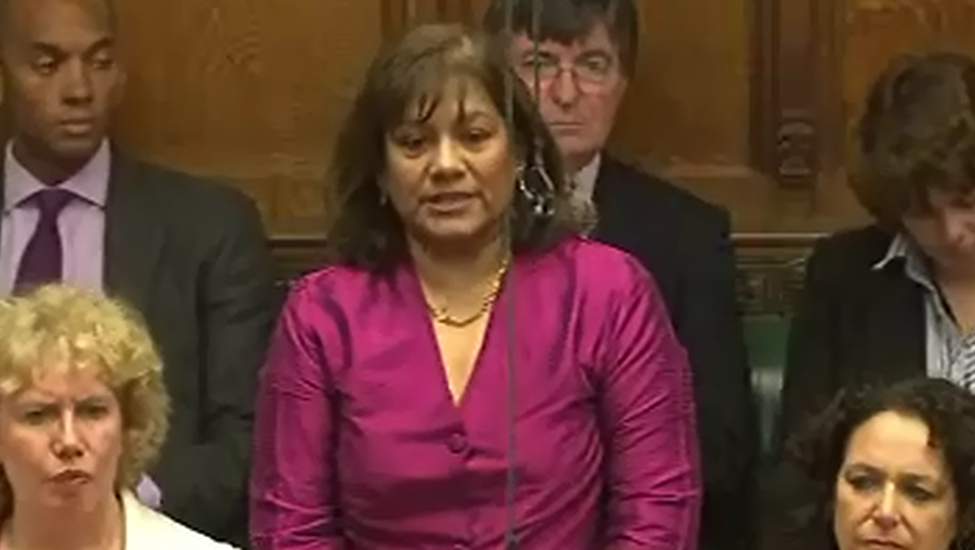- 22/06/2011
- Posted by: Valerie Vaz MP
- Category: News

On 22nd June Valerie asked the Prime Minister to increase Government support for people with epilepsy and related conditions.
Valerie is the primary sponsor of a Bill brought in under the ten-minute rule procedure, which requires the Government to publish health and education action plans to support people with epilepsy and related conditions. During today’s Prime Minister’s Question Time in the House of Commons chamber, Valerie asked David Cameron to meet with her to discuss how the proposals of the Bill could be progressed. In his answer, The Prime Minister agreed to a meeting.
Valerie said:
“I wanted to raise this issue with the Prime Minister directly at Question Time and ask him to meet with me, with epilepsy organisations and with epilepsy specialist Professor Helen Cross. There are almost 1000 deaths from epilepsy related causes each year, and 400 of these are potentially avoidable. What is required is immediate referral to a tertiary specialist, and assessments in schools to identify young people’s needs. This will help people with epilepsy and related conditions to fulfil their potential and avoid the risks associated with their condition if it goes untreated.”
“I am delighted that the Prime Minister has agreed to meet with me and I look forward to progressing these proposals further.”
You can read the transcript of the exchange in Hansard here
– About 500,000 people have epilepsy in the UK. It is the most serious neurological condition and is a major long-term disability with similar numbers of people affected as insulin dependent diabetes.
– 990 people in England die every year of epilepsy-related causes
– About 365 deaths are of children and young adults
– 59% of all childhood deaths are considered avoidable
– 69,000 more people with epilepsy could have their seizures controlled with good treatment
– 74,000 are taking aggressive drugs unnecessarily, owing to a misdiagnosis rate of 20-31%
See: Joint Epilepsy Council (2010) Epilepsy: The consequences of inadequate health and education services.
For information and helplines, see: www.jointepilepsycouncil.org.uk

